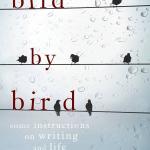by Crystal St. Marie Lewis
R3 Contributor
*This first appeared on Crystal St. Marie Lewis blog
Once upon a time in a land far away, on a day many thousands of years before today, a man received a bread recipe. The ingredients were not out of the ordinary for the man’s era, and certainly would not be strange for our society: Wheat and barley, beans and lentils, millet and spelt… The man was instructed to store the mixed bread elements in a jar, just as his ancestors had been instructed to store manna in a jar.
The man combined the ingredients in the jar and built his fire in preparation for the task to come, but passers-by would not smell the aroma of fire-roasted wheat that night. Instead, the wafting, intoxicating, lingering essence of roasting, baking bread would be obscured… hidden… even overpowered by the odor of burning, petrified, brimming and bubbling feces.
The man was Ezekiel, and I’m referring to Ezekiel 4:9-16– the chapter and verses in which the voice of God instructed the prophet to conduct a 390-day object lesson involving bread baked in a fire fueled by intestinal waste. (Note: when Ezekiel protested the instruction to roast loaves of bread over human excrement, God relented and allowed him to use animal dung instead. Yum.)
Is this a strange story? Yes, it is. The verses feature a prophet charged to compel his viewers and hearers into repentance through repulsion, and it depicts a god very different from the legal taskmaster we insist upon. In fact, this god demanded that Ezekiel use a substance for cooking which god himself had declared unclean. God seemed more interested in the transformation of the people than with their strict adherence to guidelines for religious purity.
This story– the story of a prophet obligated to give an unpopular message through a limited medium to hearers who would likely be too offended to hear him– is what came to mind when I learned of the backlash to the Religion Dispatches article in which African American Ivy League professor Anthea Butler declared that the god who has garnered much of racist-white-male-America’s attention over the course of the past several centuries would have to be a white racist himself, if he does exist.
Butler’s article cut to the core of the marriage of convenience that exists between our country’s most privileged class and its dominant religion. Her message was like a pile of burning, petrified excrement with an odor so strong that it wretched the stomachs of hundreds, if not thousands, of people who tried to ingest it. It was offensive– but it was the fuel needed in order to stoke an important fire– the flame necessary for producing the bread of substantive discourse… Sadly, folks couldn’thear her because her blunt words, her depiction of the so-called Christian-nation’s “god” idol, and her unwillingness to apologize offended their religiously mainstream, ritually clean, supremely pure, delicate, culturally polite sensibilities.
I’ve watched the vitriol directed at Butler and have been reminded, as I often am, that one of the primary barriers to change in Christianity is our inability to truly hear a prophetic message through our multi-layered filters of offense– especially when such a message is clearly what we need. We fail to realize that important messages won’t always be delivered in politically correct packaging using language that has been checked for theological orthodoxy, on a pillow stuffed with patriotic sensitivity. There are times when the messages– the prophetic bread– we need to ingest might just offend the dominant religion’s long-cultivated doctrinal preferences. Yes, what is said might indeed border on (or even tread boldly into) the realm of the profane.
I read Dr. Butler’s article and the commentary surrounding it, and I wished that people would stop being offended long enough to actually hear what she said. It hit me that no change will ever come until people learn to relax their purity-driven, hyper-sensitive, paralyzingly religious, and sheltered personal sensibilities. She stirred up something that stank like hell, but it was necessary. Thank you, Dr. Anthea Butler.
Follow Crystal on Twitter @crystallewis
Follow Crystal on Twitter @crystallewis















